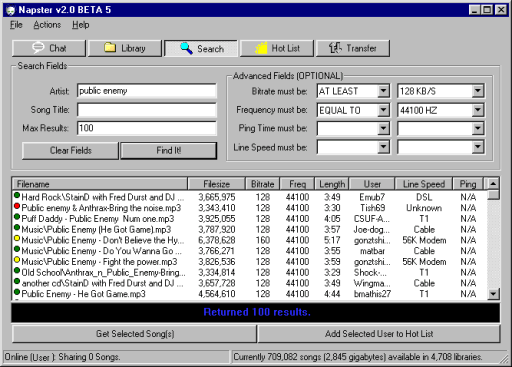This article is more than 1 year old
MP3 'died' and nobody noticed: Key patents expire on golden oldie tech
And Fraunhofer won't renew 'em
Key patents held on the MP3 audio format expired last month – and it's taken three weeks for anyone to notice.
And the Fraunhofer Institute has declined to renew the intellectual property it owns on the MPEG Audio Layer III technology – as well as terminating its licensing programme. So yup, now you can use MP3 encoding in your products almost patent free – others who worked to develop the format still hold some of the patents – and, of course, your MP3s that used to work will still work in the future.
"Although there are more efficient audio codecs with advanced features available today, mp3 is still very popular amongst consumers. However, most state-of-the-art media services such as streaming or TV and radio broadcasting use modern ISO-MPEG codecs such as the AAC family or in the future MPEG-H. Those can deliver more features and a higher audio quality at much lower bitrates compared to mp3," the Institute said in a statement.
MP3 built on the idea that the ear can be tricked – it's called psychoacoustics – to allow information to be thrown away. The Fraunhofer team's work allowed audio wave files to be compressed into a file to one tenth or one twentieth the original size. Developed for commercial transmission – the work was funded by AT&T and Thomson – the Fraunhofer Institute's discoveries were first incorporated into the MPEG-1 standard in 1991. MPEG-2 layer III followed in 1994, and "MP3" became a file format with an .mp3 extension in July 1995.
A riveting account of what happened next is in Stephen Witt's How Music Got Free – reviewed here.
MP3 languished in the mid-1990s and was rapidly obsoleted by its inventors – almost overnight. The same developers' AAC format corrected many of the limitations of the original design. As Stereophile's John Atkinson explained, when it came to AAC: "The designers of the codec obviously decided not to waste the limited bit budget by encoding information that would most probably not be heard even from the CD. Instead, they devoted those resources to a more accurate depiction of the musically significant regions at lower frequencies."
However, the older, less efficient spec became a de facto standard after the Fraunhofer encoding software was acquired using a stolen credit card, pirated and repackaged with a bogus README file claiming: "This is freeware thanks to Fraunhofer".
"He gave away our business model. We were completely not amused," mathematician Karlheinz Brandenburg – often described as the "Father of MP3" although he shuns the description – admitted later.
The older MP3 format was adopted as a pirate radio streaming codec then popular usage exploded with Napster in 1999.

Napster had many great features lacking on music services today
The music industry had years to prepare for digitisation so it isn't quite accurate to say they "didn't see it coming". Like Nokia, the music business saw change coming, but reacted badly. Market building was perpetually thwarted by corporate self-preservation (execs were incentivised by market share compared to rivals), and a long list of technology duds showed poor thought and paranoia.
"The blowtorch of decentralised P2P, the continuing popularity of the plain old CD (it's rippable), and consumer indifference to the massive and clumsy software they were being told they would have to use if they wanted music, all contributed to drying up the puddle," Paul Sanders wrote here for El Reg nine years ago.
Today, Professor Brandenburg leads the Electronic Media Technology Lab at the University of Ilmenau.
If you're looking for bleeding-edge music formats today, have a look at MQA, or Master Quality Authenticated (MQA), a British development in high-res streaming on a par with the original masters. Tidal streams in MQA and music from indie umbrella group Merlin signed a deal with MQA yesterday. ®
